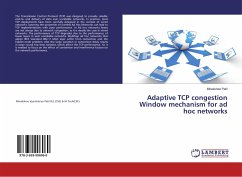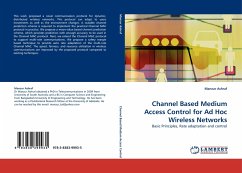The Transmission Control Protocol (TCP) was designed to provide reliable end-to- end delivery of data over unreliable networks. In practice, most TCP deployments have been carefully designed in the context of wired networks. Ignoring the properties of wireless Ad Hoc Networks can lead to TCP implementations with poor performance. In Ad hoc networks losses are not always due to network congestion, as it is mostly the case in wired networks. The performance of TCP degrades due to the performance of lower layers in such unreliable networks. Multihop ad hoc networks that adopt IEEE Standard 802.11 MAC layer suffer from contention and the hidden-node problem. Also the large variation in contention delay results in large round trip time variation which affect the TCP performance. So it is needed to focus on the effect of contention and interference factors on the network performance.








